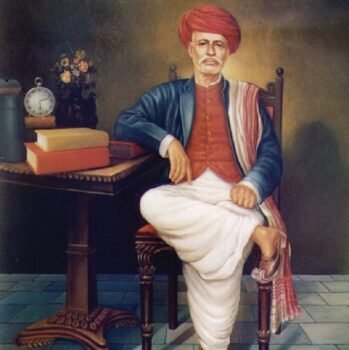Jyotirao’ Jyotiba’ Govindrao Phule was a prominent social reformer and thinker of nineteenth-century India.

Mahatma Jyotirao Govindrao Phule was born into a farmer family, he had an opportunity to get a job in the British Government, but he chose to become an entrepreneur. His entrepreneurial background and a strong sense of social responsibility are reflected in his various social contributions. According to him, social responsibility means that besides maximizing shareholder value, businesses should operate in a way that benefits society. Socially responsible companies should adopt policies that promote society and the environment’s well-being while lessening negative impacts on them.
Mahatma Phule also deserves to be recognized as the Pioneer of “Entrepreneur’s Social responsibility” as he had undertaken various business activities to earn a fortune and spent most of it for sheer social benefits. The accounts related to public activities and schools presented by him reflect his clean and transparent personality. Moreover, he spent his money on public and social activities to such an extent that he had no money to buy medicines during his last terminal illness.
By demonstrating such efforts, he encouraged the business community to donate liberally for the social work required to uplift poor, oppressed women in society.
Mahatma Phule not only identified the then society’s issues of grave concern like lack of education, untouchability, farmer’s problems, etc. but also found sustainable solutions for those issues by contributing the funds from his business profits which can be identified as precursors of today’s much-talked concept of “Corporate Social Responsibility”.
Phule visualized CSR in the form of Sarvajanik Satya Dharma (Public True Religion). All men and women should unite on this earth as one family, honestly and without discrimination, regardless of the village, province, country, continent, or religious beliefs they adhere to. He was concerned about the status of Shudras, untouchables, and women in Indian society, while in economic terms, he was interested in the peasantry and its problems.
Jyotiba was deeply influenced by the 18th-century British political thinker Thomas Paine who contributed significantly during the American and French revolutions through his aggressive speeches and writings.



















